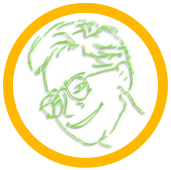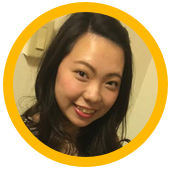
Social Sciences
Social Sciences
QR Link
Preparation
Transcript
José Cruz: Right.
Tanaka Ayaka: But especially in just in the classes it was really hard for me. It still still is even now.
Yamashita Haruka: I see what youHaruka pronounces this as “WACHU”. This induces José to start using a higher level of English pronunciation where he begins to include liaisons in his own speaking. See “all of it is about”, below. (0:07) mean. Like in my American History class (Mm-hmm) I sometimes might have like, hard time. (Yeah) Because like um, you know I’ve studied um, I’ve studied like about American history once when I was in Japan (Mmm) and I studied it, but it was (You know-) much more deeper. It’s just much deeper than I thought. (A/J: Mm-hmm) When I was in Japan the thing which I learned was super basic things. Like things…
Ayaka: Especially in Japanese, (Yeah) right? OK.
Haruka: Something things. (J: Mm-hmm) Like you know what happens and what year. (A: Mmm) Blah blah blaha slang expression that means “and other things that aren’t important” (0:38) and like who did it, (and easilyAyaka made a mistake. She should have said “easy” (0:40) content) Blah blah blah and like you know, and what kind of relationship those two elements have and that’s all. It was really interesting but in, I mean, in in my American History class in the United States It’s like much more deeper. (A: Oh yeah) It’s like depend on the person.
José: I um, I like to I like to point out the difference in the teaching and study styles in topics like what you just talked about Haruka. The Japanese style of education or teaching for a topic like history will focus around questions like “when, who” and “where”. But in American history, (A: Mm-hmm) the the “when” and the “who” of course is important, but that’s not as important as answering the questions “why” (H: Yeah) and “so what”.
Haruka: Yeah. “So what happened?”.
José: No, not not “so what happened” but- “OK that happened, so what?” Uh, which means because this happened, what else will happen because that happened. (H: Yeah) (A: It’s really really good) So what’s the connection to the next event. Or what’s the connection to the next crisis because of this crisis, or this event created this crisis, the connections between them. (H: OK) And um (H: OK) learning how to analyze and predict is what- His- history is taught so that you can learn to analyze and predict the connections between events so then you can use it to help you predict the future. And I don’t thinkNote José’s linking pronunciation of these two words together “DOHNTHInk” . The “T” in “don’t” is dropped (3:10) that’s really taught so much in Japan.
Ayaka: Hmm. (Yes) Yeah.
Haruka: That’s right. So like you know because of that (A:Mm-hmm) I mean because of the, you know because in the class which, I mean because of- because of- how can I sayHaruka does well to maintain her fluency without stopping (2:25) because of the class (J: Mm-hmm) student (J: Mm-hmm) learn the relationship (A: Mm-hmm) and like you know, so that they learn some sort of like way to predict the future (A: Ah OK) so a lot of my friends from American history class sometimes talk aboutNote Haruka’s linking pronunciation of these two words together “TAHKAbout” . (2:42), like oh what might happen in the future (J: Right) because of um (A: Ah yeah) Trump’s presidency (J: Right) (A: Oh) or something. And it’s quite interesting to talk about that (J: Yeah) topic with American students. (J: Mm-hmm. Pretty much) And you have sort of perspective about it.
José: Pretty much everything that um, is taught in those kinds of Humanities, or Social, um Social Sciences: History Sociology, Political Science all of it is aboutNote José’s linking pronunciation of these five words together “ALLAFATISITAbout” (3:10) studying a particular field of human activity so you can learn how to predict human activity in the future. (H: Right) Which is what science is all about. You’re trying to learn (A: Yeah) through experiments so you can predict how things will happen if you do things slightly differently uh with you know chemistry or with physics and you’re just doing that with people in Social Sciences.
Ayaka: Mmm.
Consolidation
QR Link
Access this article on your mobile device

Social Sciences
Speakers

José Domingo Cruz
Canadian
Vancouver, British Columbia

Tanaka Ayaka
Japanese
Chikushino, Fukuoka

Yamashita Haruka
Japanese
Oita City, Oita
Statistics
- words (including pause words)
- minutes in the mp3 audio
- words per minute for this article
Continue practicing your English fluency with the related posts above, or navigate to other authentic conversations using the Previous and Next buttons below.
Spritz
To spritz only part of this conversation, highlight the text you want and click the “SPRITZ NOW!” button. Clicking the button without any text highlighted will spritz the entire page.
To quickly adjust the words per minute (wpm), you can use the left and right arrow keys.
Writing comments will help your English writing skills. Feel free to ask questions and share opinions. We try to respond to all comments we get on the site. test




0 Comments